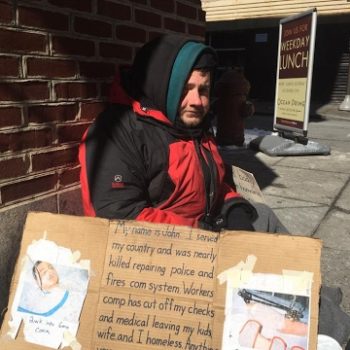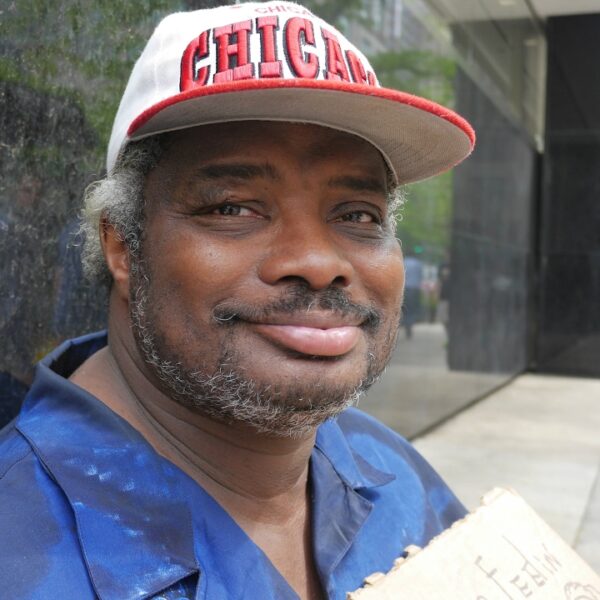Nonprofit May Have Found the Key to Providing Dignified Shelter. But Can it Scale?
Dr. Lena Miller had one goal in mind when she founded Urban Alchemy in 2018—to disrupt the traditional shelter system.
In many cases, Miller said shelters are one of the most challenging places for people who are homeless to live. Most of the people living in shelters have experienced significant trauma that led to them becoming homeless. Shelters themselves can also be dirty and violent places, Miller added, which are two of the biggest reasons why homeless people often avoid sleeping in shelters.
So, Miller and her team created a new way to provide temporary shelter and services to people in need. Urban Alchemy, which is based in the Bay Area, created what they call “Wellness Villages” of tiny homes for people who are homeless. The villages often include additional services like medical care, emotional support classes, and case management. No two villages are the same because Urban Alchemy seeks to provide services that guests in each village need rather than a template offering of services, Miller explained.
“We want to provide a space for healing and also developing connections with people there,” Miller told Invisible People. “We also know the science says the most important thing for everything in a person’s life—and I mean everything from your health to your quality of life—is the quality of your relationships.”
So far, Urban Alchemy has been able to spread its roots into eight cities spanning from Los Angeles to Denver and Birmingham, Alabama. Altogether, the nonprofits operate about 15 wellness communities and serve more than 1,300 per night, according to Miller’s estimates.
Most recently, the nonprofit was awarded a contract by Denver’s Department of Housing Stability to manage one of the city’s non-congregate shelters. The contract was awarded after advocates raised concerns about shelter conditions at one of the converted hotel shelters.
“Urban Alchemy aims to provide a Four Seasons-like experience and service for our guests at our shelter,” Miller said. “We take responsibility for the conditions?both inside and outside of our shelters that we manage and operate?to give our guests a sense of belonging, pride, and safety while ensuring our surrounding community is respected and heard.”
While the services Urban Alchemy provides appear promising, scaling the impact of its services has proven to be a challenge.
Overcoming Traditional Barriers
Like the people Urban Alchemy serves, the organization is also trying to overcome traditional barriers to scaling its shelter model.
One of the most obvious challenges is funding. President Donald Trump’s administration has attempted to significantly revamp how homeless services funding is awarded and used. For instance, the administration has attempted to add new metrics to funding applications, such as forgoing Housing First and diversity, equity, and inclusion principles. These moves have caused funders to withhold money from service providers as they seek to comply with the ever-changing demands of the administration.
Instead of relying on grant funding, Miller said Urban Alchemy typically signs a reimbursement contract with the cities it operates in. These agreements allow service providers to bill city agencies to reimburse the cost of their operation.
Urban Alchemy has also agreed to performance-based city contracts, which require service providers to meet specific outcome metrics to be paid.
Another barrier Urban Alchemy has faced is public pushback, Miller said. For example, the nonprofit has been sued by former employees alleging it mismanages funds and that local officials violated lobbying rules.
Miller said these allegations are false.
“I’m hoping we can kind of turn that corner, and now we can start to focus on our work instead of the gossip,” she said.
Scaling Dignity in a Punitive Policy Era
Miller is attempting to scale Urban Alchemy at a time when homelessness is exploding across the U.S. Last year, there were more than 771,000 people who were homeless, which represents an 18% increase from the previous year, according to federal data.
Experts expect this trend to continue to worsen because of the country’s rising cost of living, the lack of affordable housing, and the administration’s attempts to rewrite the rules for receiving homeless services funding.
The nonprofits are also seeking to scale at a time when compassionate solutions to homelessness, such as Housing First and harm reduction, are being supplanted with work and treatment-first options.
For example, Utah officials are building a 16-acre campus outside of Salt Lake City, Utah, that will be used to place as many as 1,300 people who are homeless into what critics have called a “detention camp.” The camp would force guests to undergo mental health and substance abuse counseling, even if they are not suffering from mental health and substance abuse issues.
“It’s what they did in World War II in Japanese detention camps,” Jesse Rabinowitz of the National Homelessness Law Center, told The New York Times about the camp. “This reads similar to rounding up Jews or other people the Nazis didn’t like.”
How to Support Communities That Choose Compassion
Now is not the time to be silent about homelessness. Unhoused people deserve safe and sanitary housing just as much as those who can afford rent or mortgage.
Poverty and homelessness are both policy choices, not personal failures. That’s why we need you to contact your officials and tell them you support legislation that:
- Streamlines the development of affordable housing
- Reduces barriers for people experiencing homelessness to enter permanent housing
- Bolsters government response to homelessness
Together, we can end homelessness.













